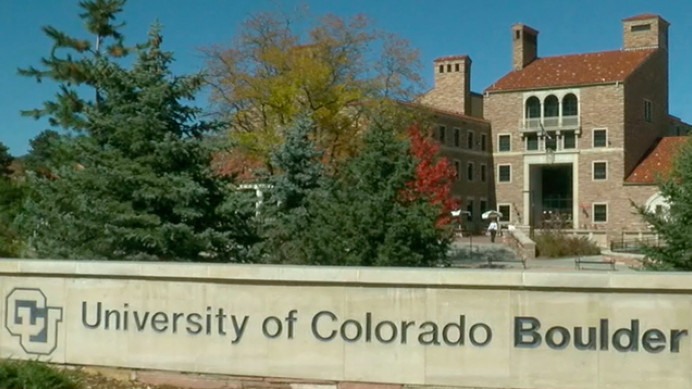“A Really Backwards System”: the FHS Young Democrats Club’s Fight Against Legacy Admissions
March 21, 2021
“We are writing today to demand that legacy admissions at the University of Colorado Boulder be abolished,” begins the Fairview Young Democrats club’s letter to the University of Colorado (CU). With seven co-signing organizations, the club intends to alter CU’s policy on legacy admissions. “In light of the current pandemic, when underprivileged students are already being disproportionately harmed, this issue remains exceedingly important.”
While CU, unlike 42% of private college institutions and 6% of other public institutions, claims not to heavily weigh legacy status when it comes to deciding who will be admitted, information on legacy status is still available to admissions officers.
“Our concern is that CU will show up on lists of schools that accept legacy students, which will discourage minority students from applying in the first place, and that admissions officers will see the legacy status and have that implicit bias,” said sophomore Julia Hunt, leader of the Young Democrats Club and head of this project.
True to Hunt’s claim, University of Colorado Boulder is included on the collegetransitions.com list of colleges that consider legacy admissions. The school is listed as having legacy status “considered”.
The letter cites education activist Richard Kahlenberg’s book, Affirmative Action for the Rich: Legacy Preferences in College Admissions, which claims legacy admissions policies were “born of anti-immigrant and anti-Jewish discriminatory impulses” in the 20th century.
Additionally, the letter addresses a 2019 study by the National Bureau of Economic Research, which found that 43% of white students at Harvard University have been legacy applicants, as opposed to only 16% of students from racial minority groups.
In a poll conducted in 2016, 52% of Americans polled believe legacy should not weigh in at all to whether a student is admitted to a college, while 11% believe legacy status should be a major factor.
So far, the letter been co-signed by the FHS branch of the Sunrise Movement, the FHS Equality Club, the Boulder High School Latino Student Organization, the members of Indivisible Boulder, the members of Open Boulder, and the CU Socioeconomic Justice Society.
I think [the letter] is important because legacy is essentially another way for the rich and upper-class to buy their way into college. Colleges admit legacy students because then they’ll be more likely to get alumni donations from that family,” said Ilana Diddams, a council member of the FHS Sunrise Movement branch. “Legacy obviously disadvantages BIPOC and low-income students who are more likely to be the first in their families to go to college or to go to a more selective college.”
On April 1st, the club will be meeting with the Boulder County branch of the NAACP (the National Association for the Advancement of Colored People) to present and attempt to convince them to also co-sign the letter. The organization, which was founded in 1909, has half a million members world wide. It cites education as one of its primary goals, saying on its website: “We are focused on the opportunity gaps between students of Color, students in economic need, and students learning English.”
To organize, plan, and gain publicity for the project, Hunt and her fellow club members are also collaborating with Rachel Knoche, who worked on Governer Jared Polis’s campaign and with the non-for-profit organization New Era Colorado.
In mid-April, the club is planning to send the letter to the CU diversity board (known as the Idea Council) and arrange a meeting with the diversity board to discuss their possible support. After that, the Young Democrats Club intends to present the letter to CU Chancellor Philip DiStefano and the Admissions Board committee.
“We have a really strong argument– there’s tons of evidence that points in favor of our argument, and all of our signing organizations show popular support for it,” said Hunt. “If I had to predict the response, I’d say they [the Chancellor and the Admissions Board committee] would be probably willing to meet with us, but then we’re going to have to take additional steps to further the project.”
These further steps, according to Hunt, will likely include a protest on the CU campus, a petition individuals can sign, informational flyers around the campus, and beginning a student-lead organization at CU for continued student action.
Hunt, the rest of the club, and their co-signing organizations are fully committed to executing on their plan and abolishing legacy admissions at CU.
“It’s an elitist system,” Hunt said. “It’s just so discriminatory and helpful to the rich. […] and it’s just a really backwards system that I believe needs to be changed.”














